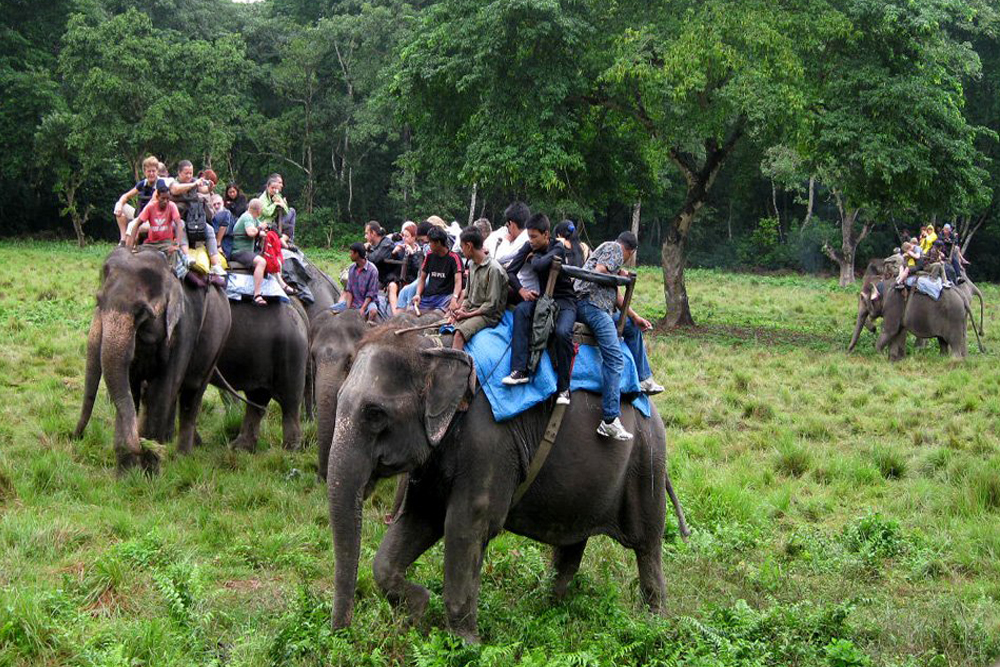
Chitwan National Park, located in the subtropical lowlands of southern Nepal, is a UNESCO World Heritage Site renowned for its rich biodiversity. Spanning 952.63 square kilometers, the park is a haven for wildlife, including the endangered one-horned rhinoceros, Bengal tigers, elephants, and numerous bird species.
Established in 1973, Chitwan National Park is a significant conservation area that preserves the Terai ecosystems. Its diverse landscapes include dense forests, grasslands, and the Rapti River, providing a habitat for a wide range of flora and fauna.
Visitors to Chitwan can engage in thrilling wildlife safaris, canoe rides, and nature walks to observe the park’s diverse inhabitants. The traditional Tharu culture, exhibited through local villages and performances, adds a cultural dimension to the experience.
Chitwan National Park plays a vital role in conservation efforts and offers a unique opportunity for eco-tourism, allowing visitors to appreciate nature’s beauty while contributing to the preservation of this important ecological sanctuary. It stands as a testament to Nepal’s commitment to environmental conservation and sustainable tourism practices.
